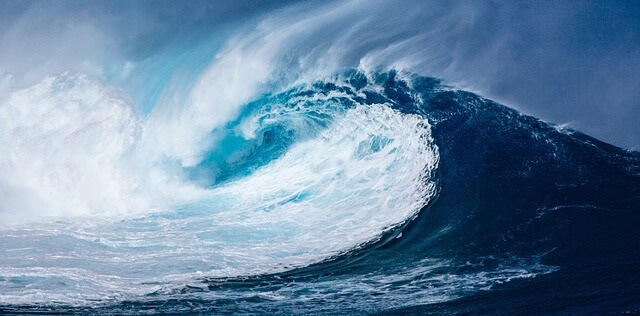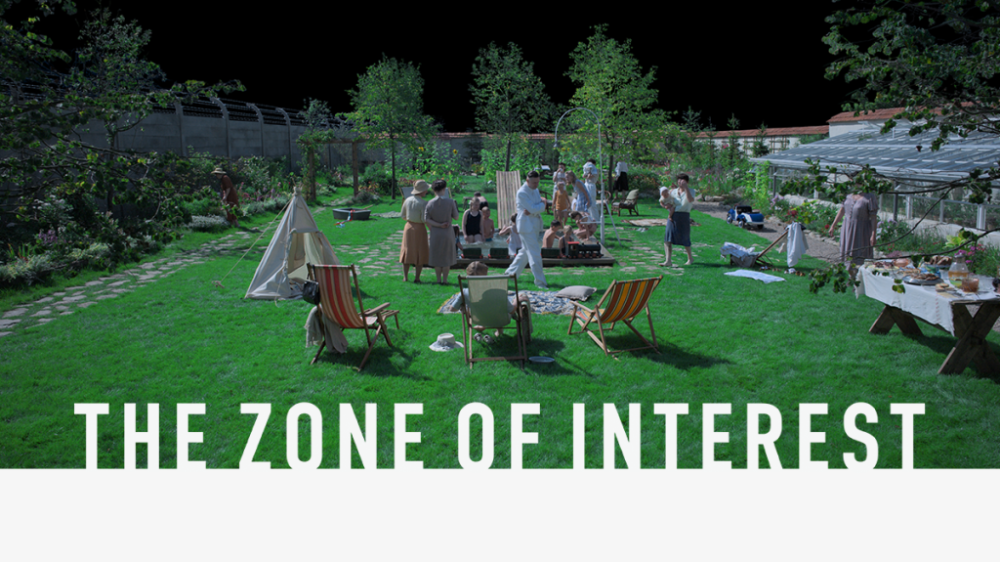"In the end, confusion is not a lack of understanding. It's more understanding. Mainstream reporting and some people in power want to make everything clear to people--at the expense of the very issues and people they deal with. They can't. If it's complicated. Leave it as complicated. Give people a chance to think."
--Dai Sil Kim-Gibson, "Dreamland and Disillusion." (Film Quarterly: Fall 2011)
----------------------------------------------------------------------
Allen, Brittany. "For philosophy newbs: five thinkers to follow today." Literary Hub (April 29, 2024) ["To paraphrase the novelist Sheila Heti, I’ve been spending a lot of time lately wondering: how should a person be? These are vexy times, on both global and local theaters. Big questions structure the day. Questions like, what is gender? What is speech? What is democracy? What do we owe one another, or the planet? (Picture the pipe now, rising to my lips…)."]
Andrews, Kristin, Monica Miller, and Gabriel Rosenberg. "Living in a Zoopolis." Hi-Phi Nation (April 18, 2023) ["A zoopolis is a future society that philosophers envision where wild, domesticated, and denizen animals have full political and legal rights. What would that look like? In this episode, we look at how animals were put on trial in medieval European courts, and how animal rights advocates are bringing animals back into the courtrooms to sue people and the US government. We then look at what the science of animal minds tells us about how much agency animals have, and envision what political and legal rights various animals would have in a zoopolis. From there, we discuss and debate whether we should be allowed to farm animals, control their reproduction, and have them work for us. Co-produced with Alec Opperman, guests include historian Gabriel Rosenberg, attorney Monica Miller, and animal minds researcher Professor Kristin Andrews."]
Bellot, Gabrielle. "On America’s Two-Party System… And the Damage It Has Done." Literary Hub (April 23, 2024) ["As it is, our tacitly two-party system makes it feel normal, if not outright necessary, to demonize the members of the other political party—at times of heightened tension, as now, to demonize them in the starkest Manichean terms of good versus evil—and to see each election in violently stressful terms, for each election under such a worldview sees victory as safety and loss as an existential threat. (And, in a world where polarization has resulted in authoritarian strongmen like Trump, those existential threats are all too real.) The binary has become a battering ram against the door of the soul. I’d like to dream of a better system. Imagine an America where you don’t just have one of two choices, Democrat or Republic, but six or seven or eleven, each distinct, each unconstrained by the norms of a larger party they are trying to fit themselves within like round pegs into square holes because they are not trying to fit themselves within anything but a party that represents them, that truly represents them. Imagine being able to vote for a progressive party that is wholly committed to such ideals, unconstrained by centrists; moderates, too, could vote for their own interests more easily. And imagine, then, that we no longer rely on such an egoistic winner-take-all system, but one where each political party is awarded a proportional share of power based upon their performance, so that no one party “rules” when an election is decided, but must form coalitions with the other well-performing parties to succeed. Imagine an America where political conversation and compromise weren’t quaint, quiescent notions, relics of romanticization, but necessities for passing legislation, as no one party is likely to dominate the House or Senate as is the case now."]
Butler, Judith. Gender Trouble: Feminism and the Subversion of Identity. Routledge, 2006. ["One of the most talked-about scholarly works of the past fifty years, Judith Butler's Gender Trouble is as celebrated as it is controversial. Arguing that traditional feminism is wrong to look to a natural, 'essential' notion of the female, or indeed of sex or gender, Butler starts by questioning the category 'woman' and continues in this vein with examinations of 'the masculine' and 'the feminine'. Best known however, but also most often misinterpreted, is Butler's concept of gender as a reiterated social performance rather than the expression of a prior reality. Thrilling and provocative, few other academic works have roused passions to the same extent."]
Ford, Phil and J.F. Martel. "Visions of the Wasteland: On George Miller's 'Mad Max' Films." Weird Studies #168 (May 1, 2024) ["There are artists who express the vision of a place, person, or thing so vividly and originally that it sets the bar for all future imaginings. With his four Mad Max films, this is what George Miller did with the image of the Wasteland. No one has been able to capture the stark, raw energy and chaotic beauty of a post-apocalyptic desert quite like Miller. His portrayal not only defines the aesthetic of a cinematic world but also prompts us to think about the meaning of civilization, technology, humanity, and how they intertwine. In this episode, Phil and JF discuss how Mad Max challenges our perception of civilization, and our conception of the human."]
Holland, Tom and Dominic Sandbrook. "Custer vs. Crazy Horse: Horse-Lords of the Plains (Part 3)." The Rest is History (May 8, 2024) ["Of all the great characters entangled in the story of George A. Custer and the American Indian Wars, few are as captivating as Crazy Horse. A mighty warrior of the Lakota Sioux, and a tremendous military tactician, he was a charismatic but enigmatic figure. The Sioux, of which the Lakota are a subculture, are groups of Native American tribes and First Nations people from the Great Plains. Their way of life was transformed by the introduction of horses to North America, but their nomadic lifestyle and dependence upon buffalo hunting was severely threatened by the imposition of telegraph lines, forts and then railroads upon their lands. So it was that, reluctant to be confined to the reservations outlined for them by the U.S. Government, they decided to fight back, under the joint leadership of the politically savvy Red Cloud, and the fated, fearless, tactically brilliant, Crazy Horse… Join Dominic and Tom as they plunge into the world of the Lakota Sioux, looking at the history of their people in the American plains, their rich, complex culture and often gory rituals, and the fascinating characters who would challenge George Custer and the U.S. Government."]
---. "Lord Byron: Mad, Bad and Dangerous to Know (Part 1)." The Rest is History (April 14, 2024) ["Few lives from history can have contained as many strange and exciting strands as that of Lord Byron's, whose story reflects the great dramas of the Napoleonic era. A vampiric hero of devilish charisma; a martyr for liberty, a licentious lothario; Byron’s cultural and literary impact cannot be underestimated. The remarkable course of his life, and his mercurial nature can in part be explained by the dark events of his childhood, and the outlandish history of his own family. Born with a club foot - his “satanic mark” - to “Mad Jack” Byron, a former gigolo dogged by incest and financial ruin, and an unpredictable mother, a strange curse seemed to lie over the family. Impoverished before the inheritance of his title and a romantic ruin in Nottinghamshire, the plump and provincial boy would finally find solace at school and university, where he transformed into the glamorous rake he would become. There too would he discover the dubious sexual passions that would haunt his life…"]
Reskinoff, Ned. "Hollywood’s Nomads: On Pamela Robertson Wojcik’s Unhomed." Los Angeles Review of Books (April 10, 2024) ["In Unhomed, Wojcik demonstrates at length that Hollywood’s denialism is a break from precedent: earlier American films show a consistent preoccupation, even fascination, with homelessness and housing insecurity. A professor of film studies at the University of Notre Dame, Wojcik is the author of two other books about the role of home and place in American cinema—Fantasies of Neglect: Imagining the Urban Child in American Film and Fiction (2016) and The Apartment Plot: Urban Living in American Film and Popular Culture, 1945 to 1975 (2010). In her latest, she traces the evolution of film’s itinerant wanderers from the tramps and hobos of the silent era up to the titular drifters of Nomadland (2020). According to the book’s introduction, “Unhomed is about a curiously neglected dominant in American culture: mobility without Manifest Destiny, movement without terminus, geographic mobility that does not produce hope of social mobility.”"]
Robinson, Nathan J., et al. "The Bourgeois Morality of 'The Ethicist.'" Current Affairs (April 24, 2024) ["The New York Times advice column, where snitching liberal busybodies come to seek absolution, is more than a mere annoyance. In limiting our ethical considerations to tricky personal situations and dilemmas, it directs our thinking away from the larger structural injustices of our time."]
West, Stephen. "How much freedom would you trade for security? (Foucault, Hobbes, Mill, Agamben)." Philosophize This! #187 (August 31, 2023) ["On today's episode we talk about the upsides of a surveillance state. The ongoing social dilemma of freedom vs security. The value of privacy. States of exception. And Deleuze's Postscript on Societies of Control."]



